Papers by Adriana Di Lorenzo Tillborg

Following the EU declaration from 2016 on schools as the most crucial places for societal change ... more Following the EU declaration from 2016 on schools as the most crucial places for societal change needed in order to strengthen democracy, this chapter discusses Nordic music education and music education research within the context of shared challenges in times of rapid demographic changes. Resting on emerging results from the authors’ research projects, the first theme to be discussed is music education and social sustainability. Secondly, we shed light on inclusion and policy issues in music education and in the last section the focus is on democracy. The empirical data emanates from the implementation of the music education model El Sistema in Malmo, and from the on-going change process within Swedish Art and Music Schools. In our discussion, we underline the importance of research being connected to the field of praxis and engaging in policy as tools for developing democratic praxis. We also see the importance of the NNME network to stimulate and support collaborative research m...
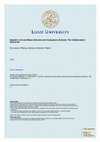
Sweden’s Art and Music Schools offer courses and activities after the school day. Besides that, A... more Sweden’s Art and Music Schools offer courses and activities after the school day. Besides that, Art and Music Schools also work in collaboration with compulsory schools, including training schools and special schools. The investigation report on Art and Music Schools, part of the national policy process, focuses on the ‘after school’ parts of Art and Music Schools, leaving the other parts untouched, as the investigation considers that the voluntary after school activities/programs constitute the core of Art and Music Schools. The present paper focuses on how Art and Music Schools work in collaboration with compulsory schools, as a way to include all children, and departs from the troubling information provided by extant research that confirms that the dominant Art and Music School discourse is sharply separated from a compulsory school discourse.Discourse analysis, discursive psychology and educational policy theory will constitute the theoretical framework. Specifically, the paper ...

Kulturskolan nar over 400 000 barn i Sverige arligen. Institutionen har trots det inget definiera... more Kulturskolan nar over 400 000 barn i Sverige arligen. Institutionen har trots det inget definierat uppdrag pa nationell niva men fragan om vad institutionens uppdrag kan tankas vara aktualiseras ofta i olika sammanhang. Ett aterkommande tema ar om Kulturskolan ska forvalta ett kulturarv eller folja marknadsestetiken. Syftet med studien ar att ur Kulturskolechefernas perspektiv undersoka Kulturskolan och forandringarna som institutionen stalls infor. Forskningsfragorna som alla syftar pa institutionen Kulturskolan ur ett chefsperspektiv ar: hur mycket paverkas verksamhetens innehall av marknadsestetiken? Hur positionerar Kulturskolecheferna sig i spanningsfalten som uppstar mellan kulturarv och marknadsestetik? Hur ar Kulturskolechefernas syn pa institutionens pastadda grundlaggande funktioner? Ar Kulturskolecheferna positiva eller negativa infor framtiden mot bakgrund av samhallsforandringarna? I vilken omfattning stodjer Kulturskolecheferna ett eventuellt inforande av en nationell ...

In the Nordic countries, as in other contemporary societies across the world, increased migration... more In the Nordic countries, as in other contemporary societies across the world, increased migration following from conflicts, persecution and natural disasters has led to the arrival of and ensuing responsibility for cohorts of refugees and asylum seekers, many of which are underage children. With small chances of a safe return to their homelands for years to come, these children rely on the policies and practices of their host nations to promote the development of skills and competencies necessary to understand, live and work in their new societies. Moreover, they depend upon their host cultures to facilitate social integration while also providing the opportunity of maintaining and developing their own cultural identities. Through the UN convention relating to the status of refugees, as well as the UN convention on the rights of the child, refugee children are ensured these rights: the right to elementary education, the right to practice and enjoy one’s own language and culture, and...
Forskningsrapporten undersoker i vilken omfattning barn och unga i behov av sarskilt stod inklude... more Forskningsrapporten undersoker i vilken omfattning barn och unga i behov av sarskilt stod inkluderas i kulturskolors verksamhet, enligt kulturskoleledarna. Resultaten, som bygger pa kvantitativ data ur en landsomfattande enkatundersokning med kulturskoleledare, avslojar att det finns sex stycken kulturskolor som inte inkluderar barn och unga i behov av sarskilt stod.

Music Education Research, 2021
Sweden’s Art and Music Schools (SAMS) have assumed some responsibility for facilitating refugee c... more Sweden’s Art and Music Schools (SAMS) have assumed some responsibility for facilitating refugee children’s social inclusion. This article investigates how the inclusion of refugee children in SAMS is introduced by leaders as well as how the theme is constructed and addressed as a topic in policy documents (related to the national policy process for SAMS). Two data sets constitute the empirical base: (1) conversations with leaders and (2) policy documents. Policy and discourse theories constitute the analytical and theoretical framework. The analyses expose how problematisations occur on an overarching level and how they construct subjects and topics. Furthermore, some significant consequences of different choices of terminology are emphasised; the problematisations have implications for agency capacity. The article concludes that as society changes, SAMS must change to accommodate new cultures while maintaining their own cultures. The results call for a multicentric view of inclusion.

The aim of this thesis is to critically investigate the discourses of Sweden’s Art and Music Scho... more The aim of this thesis is to critically investigate the discourses of Sweden’s Art and Music Schools (SAMS, kulturskolor in Swedish) connected to policy processes for the democratisation of music education for all children and adolescents. A further aim is to contribute to knowledge on the development and enactment of policy processes for the democratisation of music education. The empirical material is based on focus group conversations with sixteen SAMS leaders and policy documents related to SAMS. The overall research questions are as follows: (1) What discourses of inclusion and exclusion constitute and are constituted by leadership positioning in relation to policy processes for the democratisation of music education? (2) How is the enactment of policies constituted within and through SAMS leaders’ discursive practices? (3) How is the inclusion of all children constituted within and through SAMS leaders’ discursive practices and within and through policy documents with relevanc...

Art and Music Schools (kulturskolor) are present in about 97% of Sweden’s municipalities, reachin... more Art and Music Schools (kulturskolor) are present in about 97% of Sweden’s municipalities, reaching over 400.000 children and adolescents both in activities outside of and in collaboration with compulsory schools. A national policy has never been established for Art and Music Schools, possibly owing to the fact that they are not considered part of the Swedish education system, but instead stem from local music activities as a parallel, mainly voluntary school system. For the first time since these schools started being established in Sweden in the 1940s (originally as music schools), it might become a reality for such schools to work in accordance with national policy documents, since the Swedish government has commissioned an investigation to suggest a national strategy. Considering the current process for creating national regulation for Sweden’s Art and Music Schools, it is highly relevant and interesting to undertake a research project on those schools while it is happening. Earl...

This paper exposes and problematises the situation of children and adolescents with (dis)abilitie... more This paper exposes and problematises the situation of children and adolescents with (dis)abilities in relation to Sweden’s Art and Music Schools during the time period of a national policy process.Many researchers in the Nordic countries have raised aspects of democracy in music education, as a path toward the inclusion of all children. The inclusion of children and adolescents with (dis)abilities is the aspect of democracy in music education in focus for this paper. In order to actively work towards focusing on their abilities to promote inclusion, I choose to add parenthesis when applying the concept (dis)abilities.The data consists of questions from a national survey sent to all Art and Music School leaders, three focus group conversations with a total of eighteen Art and Music School leaders and individual telephone interviews with four other Art and Music School leaders.The aim of this paper is to investigate, from leadership perspectives, whether children and adolescents with (dis)abilities are included in Art and Music Schools.The research questions are:• How do Art and Music School leaders talk about childrenand adolescents with (dis)abilities?• How do Art and Music School leaders position themselvesregarding inclusion of children and adolescents with (dis)abilities in Art and Music School activities?17A social constructionist framework makes it possible to refer to the concept of disability as socially constructed, focusing on the responsibility of society – or specifically Art and Music Schools – in making changes to include individuals with disabilities. Exposing the repressed and excluded discourses can be a way to counteract marginalisation and promote democracy.The results reveal that even though most Art and Music Schools work towards inclusion of children and adolescents with (dis)abilitites, there still are Art and Music Schools in Sweden where children and adolescents with (dis)abilities are not included in the activities. (Less)

This theoretical framework is developed for a research project regarding the specific case of the... more This theoretical framework is developed for a research project regarding the specific case of the national policy process for Art and Music Schools in Sweden, a process to create national regulation for the first time in their history. The project focuses on inclusion of every child, but also specifically on inclusion of two particular groups of pupils: pupils in need of special support and refugee children.The development of several concepts within educational policy theory, such as policy enactment, policy cycle and contemporary approach to policy making are described, discussed and connected to Foucault inspired discourse theory as well as to discursive psychology. The research project on which this paper is based focuses on the policy process itself, rather than on possible policy outcomes. Analyzing the process might add a needed dimension to the analysis of the outcomes. It might even be a way to contribute to the policy process, undertaking research on policy, but also for po...

This paper exposes and problematises the situation of children and adolescents with (dis)abilitie... more This paper exposes and problematises the situation of children and adolescents with (dis)abilities in relation to Sweden’s Art and Music Schools during the time period of a national policy process.Many researchers in the Nordic countries have raised aspects of democracy in music education, as a path toward the inclusion of all children. The inclusion of children and adolescents with (dis)abilities is the aspect of democracy in music education in focus for this paper. In order to actively work towards focusing on their abilities to promote inclusion, I choose to add parenthesis when applying the concept (dis)abilities.The data consists of questions from a national survey sent to all Art and Music School leaders, three focus group conversations with a total of eighteen Art and Music School leaders and individual telephone interviews with four other Art and Music School leaders.The aim of this paper is to investigate, from leadership perspectives, whether children and adolescents with ...
Policy Futures in Education
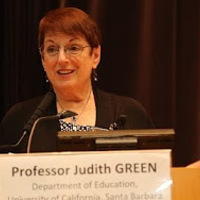
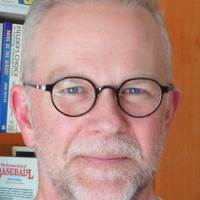

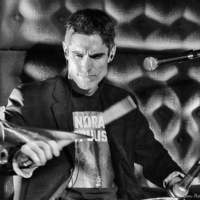

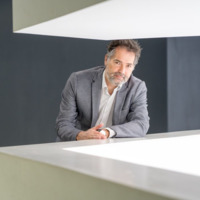
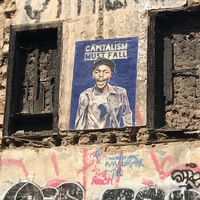
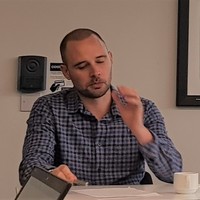
Uploads
Papers by Adriana Di Lorenzo Tillborg